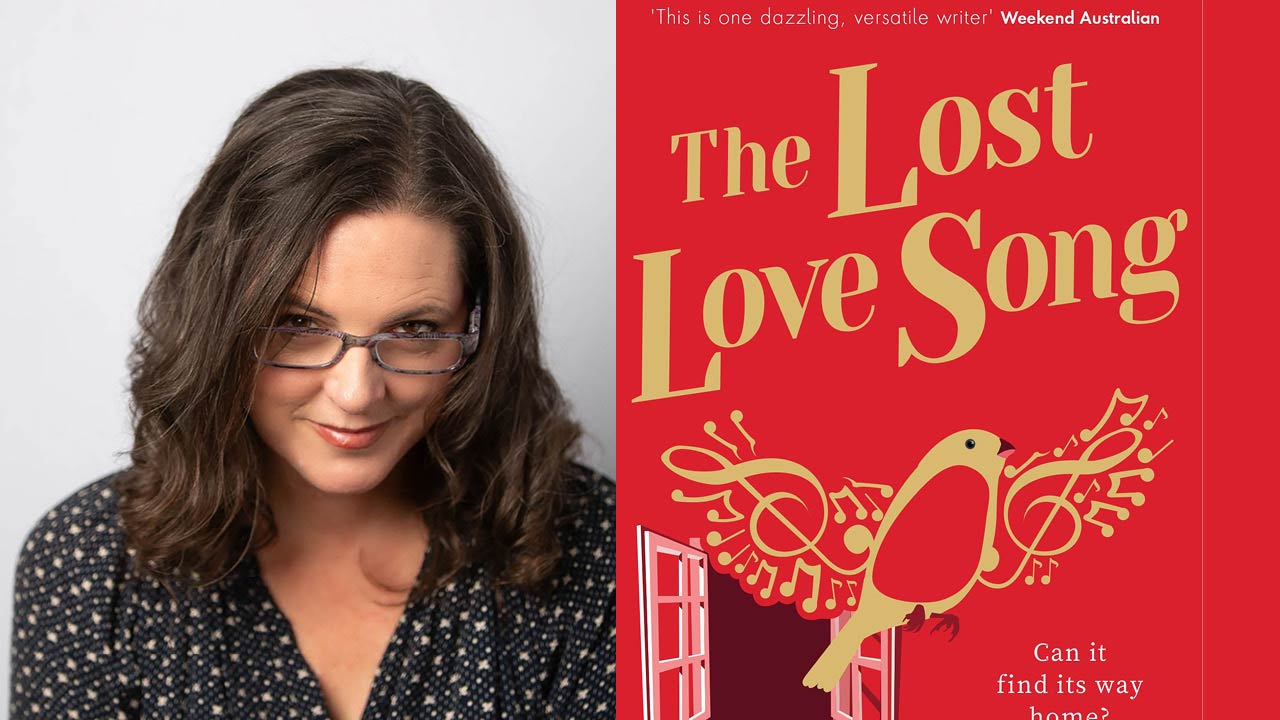5 minutes with author Minnie Darke

In 5 minutes with author, Over60 asks book writers about their literary habits and preferences. Next in this series is Minnie Darke, a writer based in Tasmania. Darke is the pen name of Danielle Wood, who has written non-fiction, short story collections, and novels for adults and children. Her bestselling book Star-crossed has won the Margaret Scott People’s Choice Award and been published in more than 30 countries. Her latest novel, The Lost Love Song, will be out on March 3.
Over60 talked with Darke about etymologies, her dinner with Margaret Atwood, and a trope she has mixed feelings about.
Over60: What is your best writing tip?
Minnie Darke: The Australian writer Bryce Courtenay was once asked what every young writer needs in order to be successful, and he answered, “Bum glue.” Apparently, he kept a belt at his writing desk and would literally buckle himself into his chair. Although there’s now research that shows your brain will benefit if you get up and walk around at intervals, or periodically shift from your sitting desk to your standing desk (or whatever groovy set-up you have), the truth remains that you simply have to put in the hours: the hours, and hours, and hours, and hours that it takes to produce your very best writing.
I also remember reading another very important piece of advice, but alas (and sorry, dear anonymous adviser) I can’t remember where. It went something like: “Nothing except writing is writing. Talking about writing is not writing, thinking about writing is not writing, planning to write is not writing. Only writing is writing.”
What book do you think more people should read?
I’m not a huge fan of the word ‘should’, but there are many, many books I’m really grateful I didn’t miss out on reading. It’s hard to pick one, but from where I’m sitting right now, I can see the shelf of books that I’ve curated according to one of my most important principles and the main one I’ve tried to live out while writing Star-crossed and The Lost Love Song. It is this: readers shouldn’t have to choose between a strong plot and great writing. Some of the books that I think have both, in spades, are The House of the Spirits by Isabel Allende, We Are All Completely Beside Ourselves by Karen Joy Fowler, The First Fifteen Lives of Harry August by Claire North, and The Name of the Wind by Patrick Rothfuss.
What was the last book that made you laugh?
I confess that I’m a bit of a word nerd, which is why I bought the book The Etymologicon by Mark Forsyth. The stories that lurk behind the words that make up our crazy, difficult, melting-pot language are frequently laugh-out-loud funny.
What do you think makes for a good romance?
In my ideal romance there are two lovers that I love, individually, as characters. They are almost certainly flawed, but this only makes them more interesting. Because I love them, I want them both to be happy. Further, it’s obvious to me that both their lives will be better if they can find a way to be together. After that, I need to be frightened that the great boon of their being together might be made impossible by some force – internal or external. And, then there’s the ending. It has to be immensely satisfying, if not necessarily happy.
How does your writing routine look like?
Up at 6am, make a cup of tea, take to my desk in my gypsy caravan in my back garden, buckle myself into my seat (no, only joking about that) and try to ignore my three children bickering while their dad nags them to get ready for school (not joking about that, at all), write until about 2pm while getting up and down to let the two dogs in and out (and in and out, and in and out, and in and out) of the caravan, and occasionally make more tea. Then eat lunch, change out of my pyjamas and dressing gown and go get the kids from school. Such glamour!
How do you deal with writer’s block?
I tell myself this: “A professional sandwich maker makes sandwiches. They just make the sandwiches. You’re a professional writer. You write the words. That is what you do. So just sit down and write the words.”
Which author, deceased or living, would you most like to have dinner with?
I did have dinner with Margaret Atwood. Tick! And although she once said, “Wanting to meet an author because you like [their] books is like wanting to meet a duck because you like paté,” nothing could change the fact that I loved meeting her.
What trope grinds your gears? Alternatively, is there a cliché that you can’t help but love?
Ha! Great questions! The things that ‘grind my gears’ are usually at the sentence level rather than the trope level, but… I have to admit that I’m sometimes irritated by love stories where the protagonists hate each other at first sight, and this is evidence that they’re meant for each other. In my life, if I dislike or distrust someone at first sight, there’s usually a very good reason! But, as soon as I say all that, I immediately think of Shakespeare’s Taming of the Shrew and its great-great-granddaughter text, the movie Ten Things I Hate About You – both of which I love, and where that trope works to perfection. Perhaps it’s all in the way it’s done, and not in the thing itself?
As for a cliché that I can’t help but love? I’m quite fond of the idea of old lovers meeting up again at a new time in their lives and reinventing their relationship – I always find myself sucked in by click-bait like, “They were in love as teenagers, then met again by chance after 40 years…”
